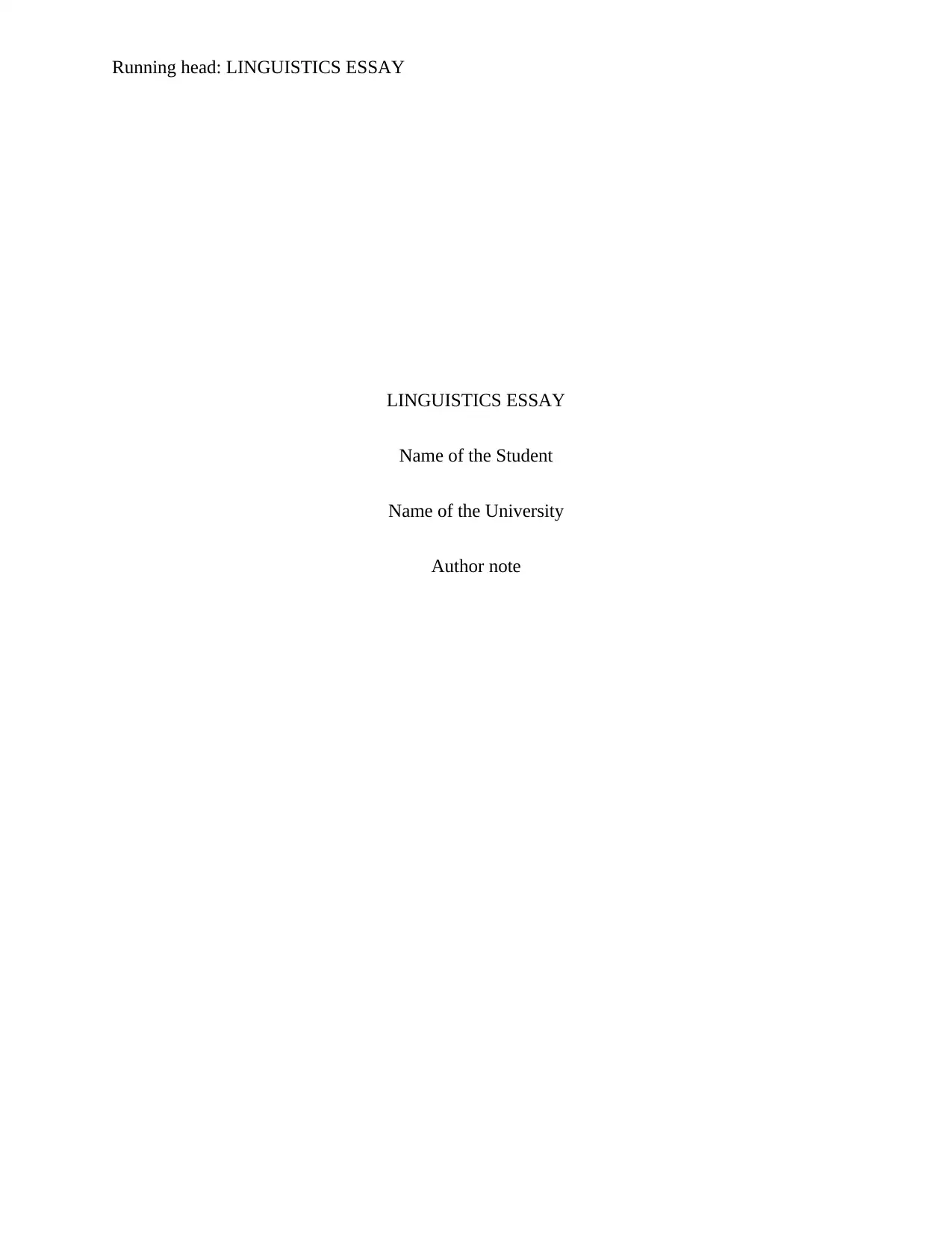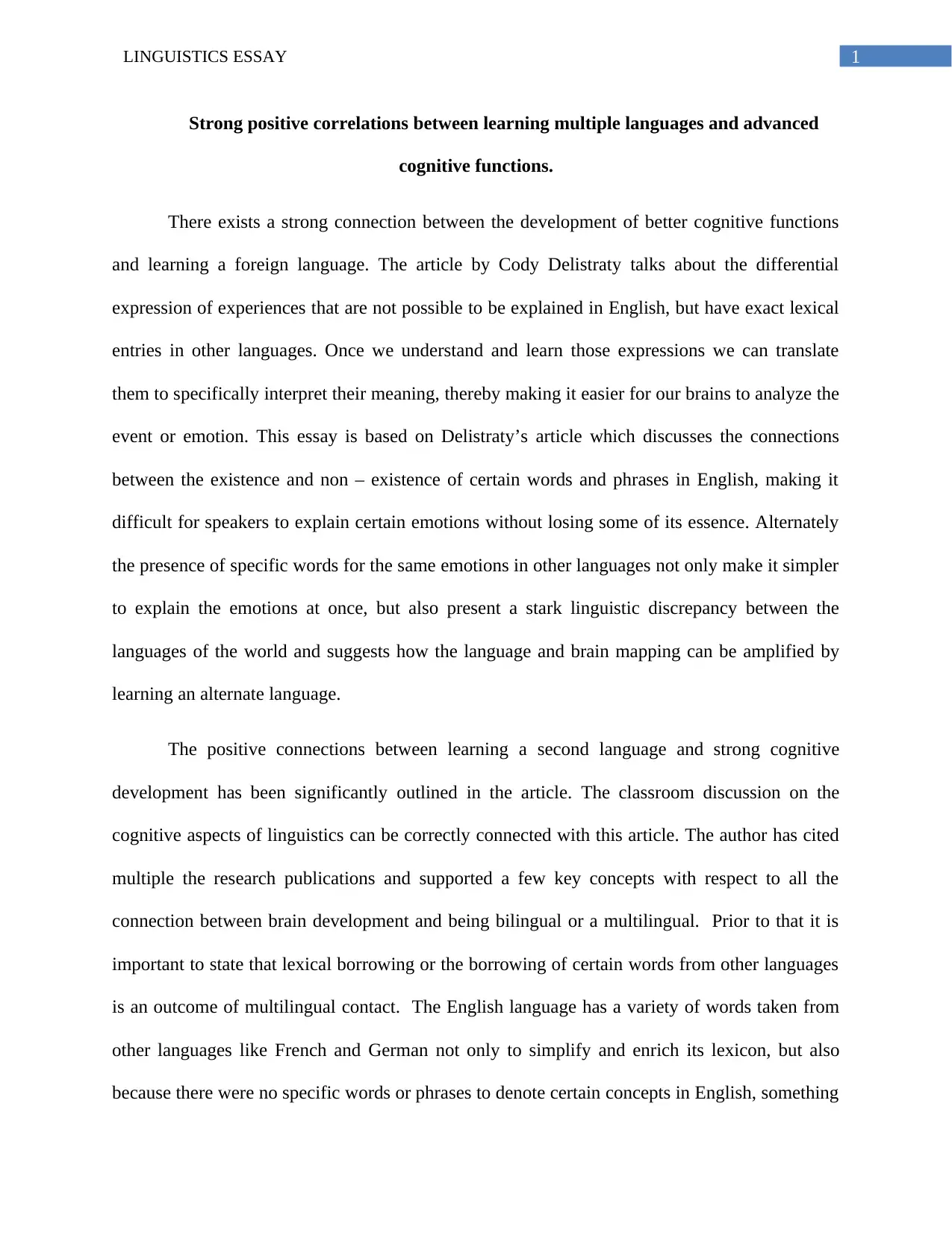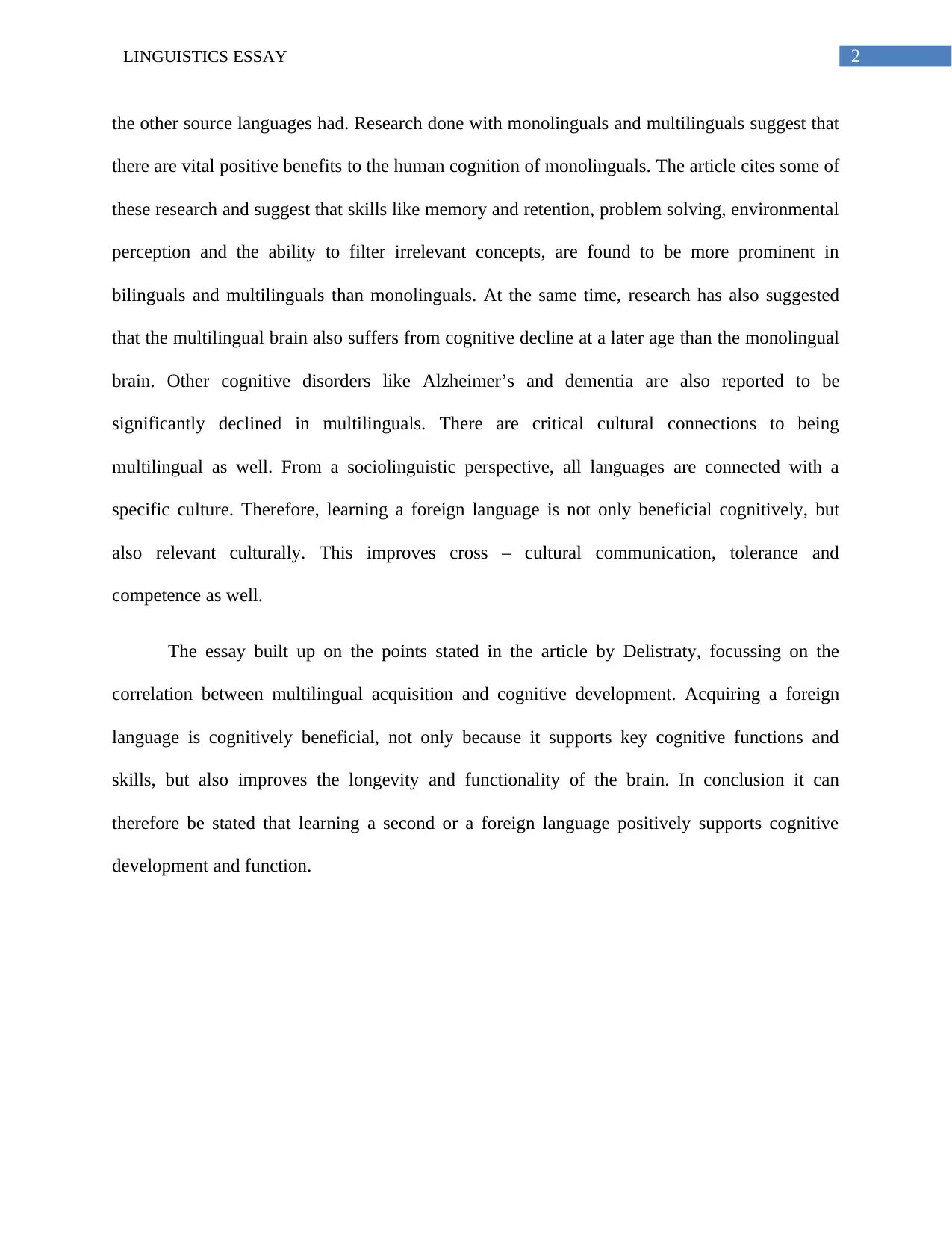LING 110 Essay: The Cognitive Advantages of Second Language Learning
VerifiedAdded on 2022/07/28
|3
|597
|15
Essay
AI Summary
This essay, written for a LING 110 assignment, analyzes the cognitive benefits of multilingualism, drawing from an article by Cody C. Delistraty published in The Atlantic. The essay begins with a discussion on how the existence of specific words in some languages, but not in English, allows for a more nuanced understanding and expression of emotions, thereby enhancing cognitive processing. It then explores the positive correlations between learning multiple languages and improved cognitive functions, including memory, problem-solving, and the ability to filter irrelevant information. The essay highlights research supporting the idea that multilinguals often exhibit stronger cognitive skills and potentially experience a later onset of cognitive decline compared to monolinguals. Furthermore, it touches upon the cultural connections inherent in language learning, emphasizing the importance of cross-cultural communication and understanding. The essay concludes by reaffirming the positive impact of second language acquisition on cognitive development and overall brain function, aligning with the concepts discussed in the LING 110 course.
1 out of 3






![[object Object]](/_next/static/media/star-bottom.7253800d.svg)